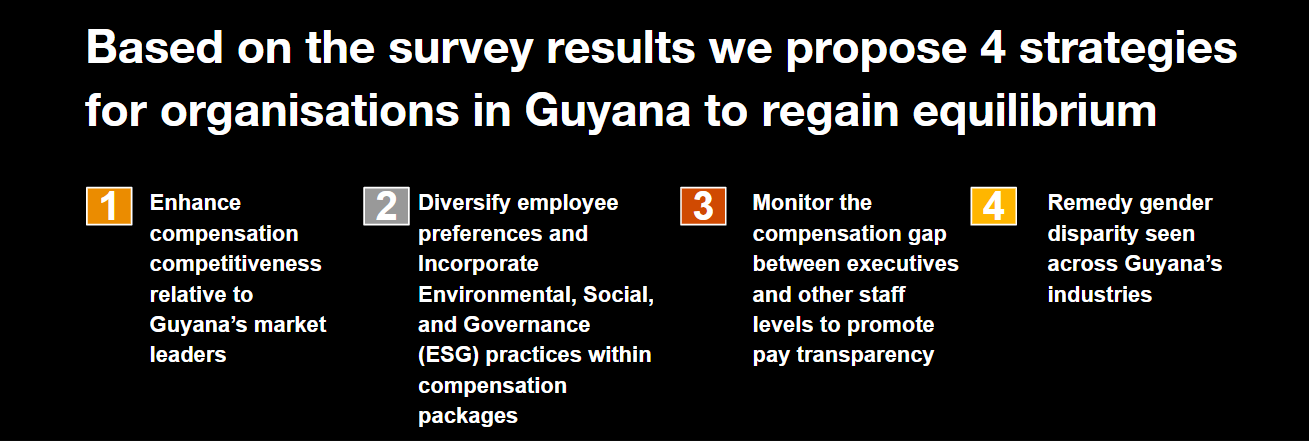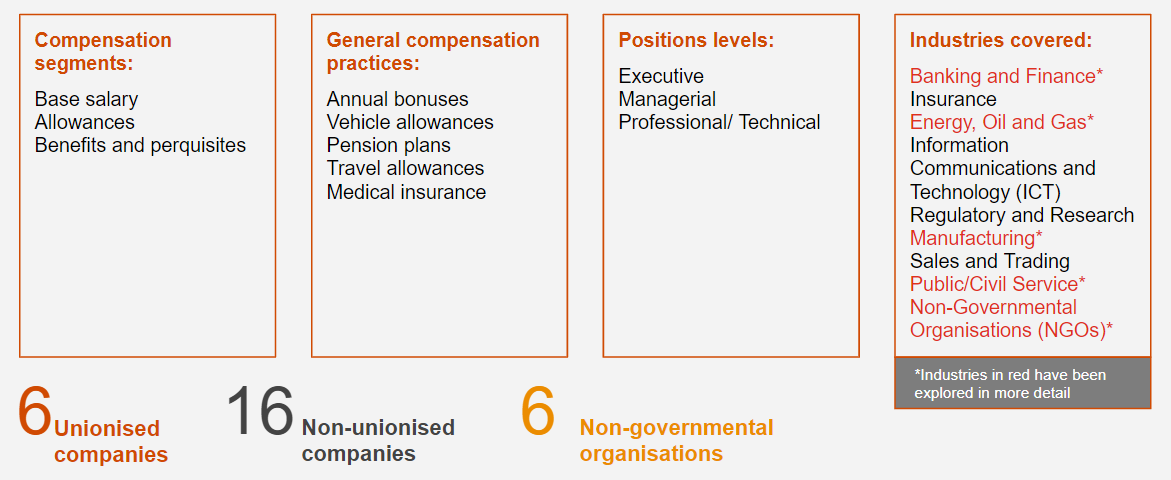
Reimagining reward for the new world
National Compensation Survey 2022

“The 'future of work' will drive changes in reward. Demographic shifts, changes in performance management, better use of technology, and a complex regulatory environment will make new demands on reward structures and strategies.”
Today’s workforce is more diverse and inclusive. Attitudes toward work are evolving, employee preferences are changing, and the speed of that change is only accelerating in the post-COVID-19 world.
Our National Compensation Survey provides insights into compensation and benefits in an uncertain world. The report includes contextual economic information and historical trends to support decision making now and in the future.

Key Highlights
Competitiveness of compensation
Guyana’s Banking and Finance sector offers Guyana’s most attractive compensation packages, followed by the burgeoning Energy, Oil, and Gas sector.
The average compensation offered by these two sectors are, on average, approximately 55% - 65% more than the compensation offered by the other sectors.

Employee preferences are becoming more diversified but Guyana’s compensation packages have not followed suit
PwC’s research has found that globally, the relative importance of financial compensation has declined by 11% over the past decade. Our compensation survey revealed that in Guyana, organisations do not offer a wide range of options to their employees as the primary focus is on base salary payout.

In Guyana, executives earn on average 3 times more than the average worker.
This depicts a compensation gap that is narrow, particularly when compared to other jurisdictions. For example, in Trinidad and Tobago executives earn on average 6 times more than the average worker; in the United States the multiplier is on average nearly 300 times the average worker. In Guyana, the gap is likely to widen as increased demands are placed on executives for growth in their organisations.

In some industries, a significant disparity is shown by either males or females for example:

Organisations should analyse the representation of genders across different employment levels to obtain more optimal analysis around what actions may be needed to remedy gender gaps in an effort to promote diversity and gender equality in the organisation.



About the survey
PwC surveyed executives from twenty-two private and public companies across nine industries providing information on over thirty-eight positions; and six non-governmental organisations covering an average of five positions. The results provide a comprehensive study on the structure of compensation in Guyana.

Interested in reading the full report?
Get comprehensive data and analytics on compensation and benefits in the Guyanese market at your fingertips.










